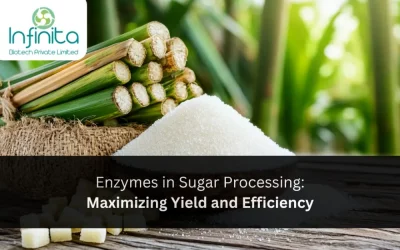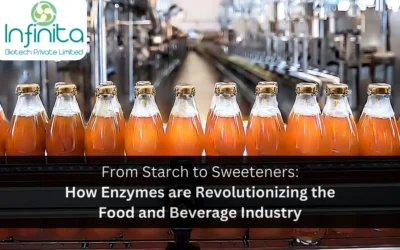Curious about lactase and its vital role in our digestion? This article delves into lactase’s nature, its function in breaking down lactose (milk sugar), its production in our bodies, lactase deficiency, and other aspects of lactase and lactose intolerance.
What is Lactase?
Lactase is an enzyme classified as a β-galactosidase. It is primarily produced in the small intestine of mammals, including humans. The digestion of lactose, a disaccharide consisting of glucose and galactose, relies on the indispensable presence of this enzyme. Lactase works by hydrolyzing lactose into its component sugars, which can then be absorbed and utilized by the body.
The Role of Lactase in Digestion
Lactase’s principal function during digestion is to enzymatically split lactose into glucose and galactose. This breakdown enables the body to absorb and utilize these sugars as a source of energy. Without sufficient lactase activity, lactose remains undigested in the intestine, leading to lactose intolerance.
How Does Lactase Work?
Lactase acts as a catalyst in the digestion process, accelerating the breakdown of lactose into its simpler sugars. The enzyme achieves this by cleaving the β-glycosidic bond connecting glucose and galactose molecules in lactose. The outcome of this hydrolysis reaction is the generation of glucose and galactose, which can be easily absorbed by the intestinal lining.
The Production of Lactase
Lactase production is at its peak during infancy when breast milk or formula is the primary source of nutrition. As individuals grow older, the production of lactase typically decreases, resulting in varying levels of lactose intolerance. The regulation of lactase production is influenced by genetic factors, as well as dietary and environmental factors.
Lactase Deficiency
Lactase deficiency refers to the inadequate production of lactase in the small intestine. This deficiency can be categorized as primary lactase deficiency, which is genetically determined and develops with age, or secondary lactase deficiency, which occurs due to injury or diseases affecting the intestinal lining.
Symptoms of Lactase Deficiency
Lactase deficiency leads to symptoms such as bloating, abdominal pain, diarrhea, and flatulence due to unprocessed lactose in the intestine. These symptoms often manifest after consuming lactose-containing foods or beverages.
Diagnosing Lactase Deficiency
Lactase deficiency can be diagnosed through various methods, including lactose intolerance tests, hydrogen breath tests, and genetic tests. These tests help identify the level of lactase activity and determine the severity of lactose intolerance.
Managing Lactase Deficiency
While the complete restoration of lactase production is not currently possible, managing lactase deficiency involves making dietary adjustments. Some people with lactose intolerance can tolerate small quantities of lactose, while others may need to completely avoid products that contain lactose. Lactase supplements and lactose-free alternatives are also available to aid digestion.
Lactase Supplements and Alternatives
Lactase supplements are designed to assist individuals with lactose intolerance in digesting lactose. These supplements contain lactase enzymes that break down lactose, allowing for better digestion and reducing the risk of uncomfortable symptoms. Additionally, lactose-free alternatives such as plant-based milk or dairy products are increasingly popular choices for those with lactose intolerance.
Lactase in Food and Beverages
In recent years, there has been an increase in lactose-free or lactase-treated food and beverages available in the market. These products undergo enzymatic treatment to break down lactose, making them suitable for individuals with lactose intolerance. Such options provide opportunities for people with lactose intolerance to enjoy a wide range of dairy-based foods without discomfort.
Lactase and Lactose Intolerance
Lactose intolerance occurs when the body lacks sufficient lactase to digest lactose properly. It is a common condition affecting millions of people worldwide. Understanding the relationship between lactase and lactose intolerance helps individuals manage their dietary choices and avoid discomfort.
Benefits of Lactase
While lactase deficiency can pose challenges, lactase itself offers certain benefits. Consuming lactose-rich foods and beverages can supply essential nutrients like calcium, vitamin D, and protein to individuals who can digest lactose effectively. These nutrients contribute to overall health and well-being.
Risks and Side Effects of Lactase
In general, lactase is considered safe for consumption. However, excessive intake of lactase supplements may lead to gastrointestinal discomfort or mild digestive disturbances in some individuals. It is important to follow recommended dosage guidelines and consult a healthcare professional if any adverse effects occur.
Conclusion
Understanding lactase, an essential β-galactosidase enzyme is crucial for individuals with lactose intolerance as it plays a vital role in breaking down lactose and facilitating its absorption in the body. By managing lactose consumption, utilizing lactase supplements, and exploring lactose-free alternatives, individuals can still enjoy a variety of food options while maintaining digestive comfort.







